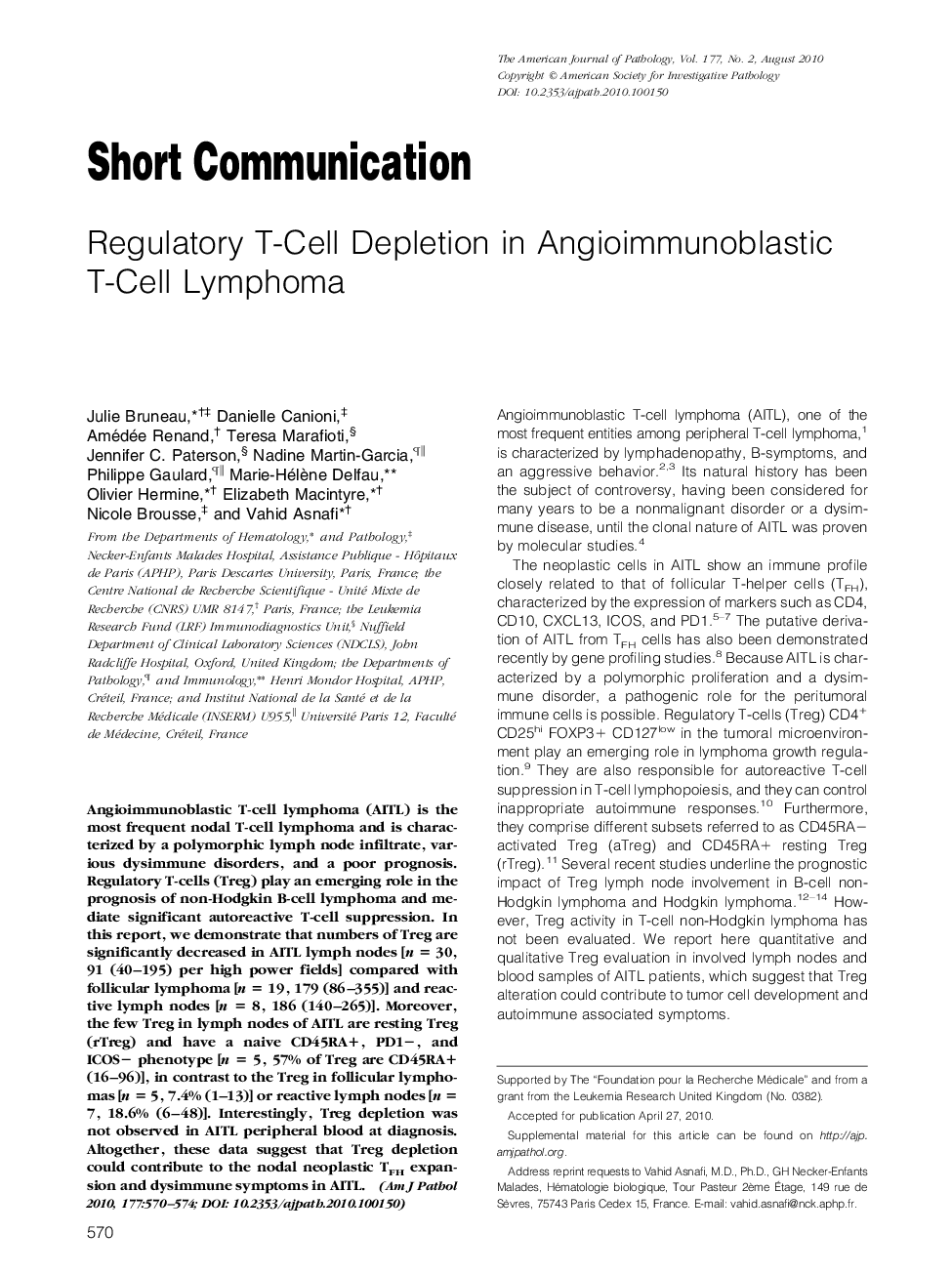| Article ID | Journal | Published Year | Pages | File Type |
|---|---|---|---|---|
| 5934913 | The American Journal of Pathology | 2010 | 5 Pages |
Abstract
Angioimmunoblastic T-cell lymphoma (AITL) is the most frequent nodal T-cell lymphoma and is characterized by a polymorphic lymph node infiltrate, various dysimmune disorders, and a poor prognosis. Regulatory T-cells (Treg) play an emerging role in the prognosis of non-Hodgkin B-cell lymphoma and mediate significant autoreactive T-cell suppression. In this report, we demonstrate that numbers of Treg are significantly decreased in AITL lymph nodes [n = 30, 91 (40-195) per high power fields] compared with follicular lymphoma [n = 19, 179 (86-355)] and reactive lymph nodes [n = 8, 186 (140-265)]. Moreover, the few Treg in lymph nodes of AITL are resting Treg (rTreg) and have a naive CD45RA+, PD1â, and ICOSâ phenotype [n = 5, 57% of Treg are CD45RA+ (16-96)], in contrast to the Treg in follicular lymphomas [n = 5, 7.4% (1-13)] or reactive lymph nodes [n = 7, 18.6% (6-48)]. Interestingly, Treg depletion was not observed in AITL peripheral blood at diagnosis. Altogether, these data suggest that Treg depletion could contribute to the nodal neoplastic TFH expansion and dysimmune symptoms in AITL.
Related Topics
Health Sciences
Medicine and Dentistry
Cardiology and Cardiovascular Medicine
Authors
Julie Bruneau, Danielle Canioni, Amédée Renand, Teresa Marafioti, Jennifer C. Paterson, Nadine Martin-Garcia, Philippe Gaulard, Marie-Hélène Delfau, Olivier Hermine, Elizabeth Macintyre, Nicole Brousse, Vahid Asnafi,
